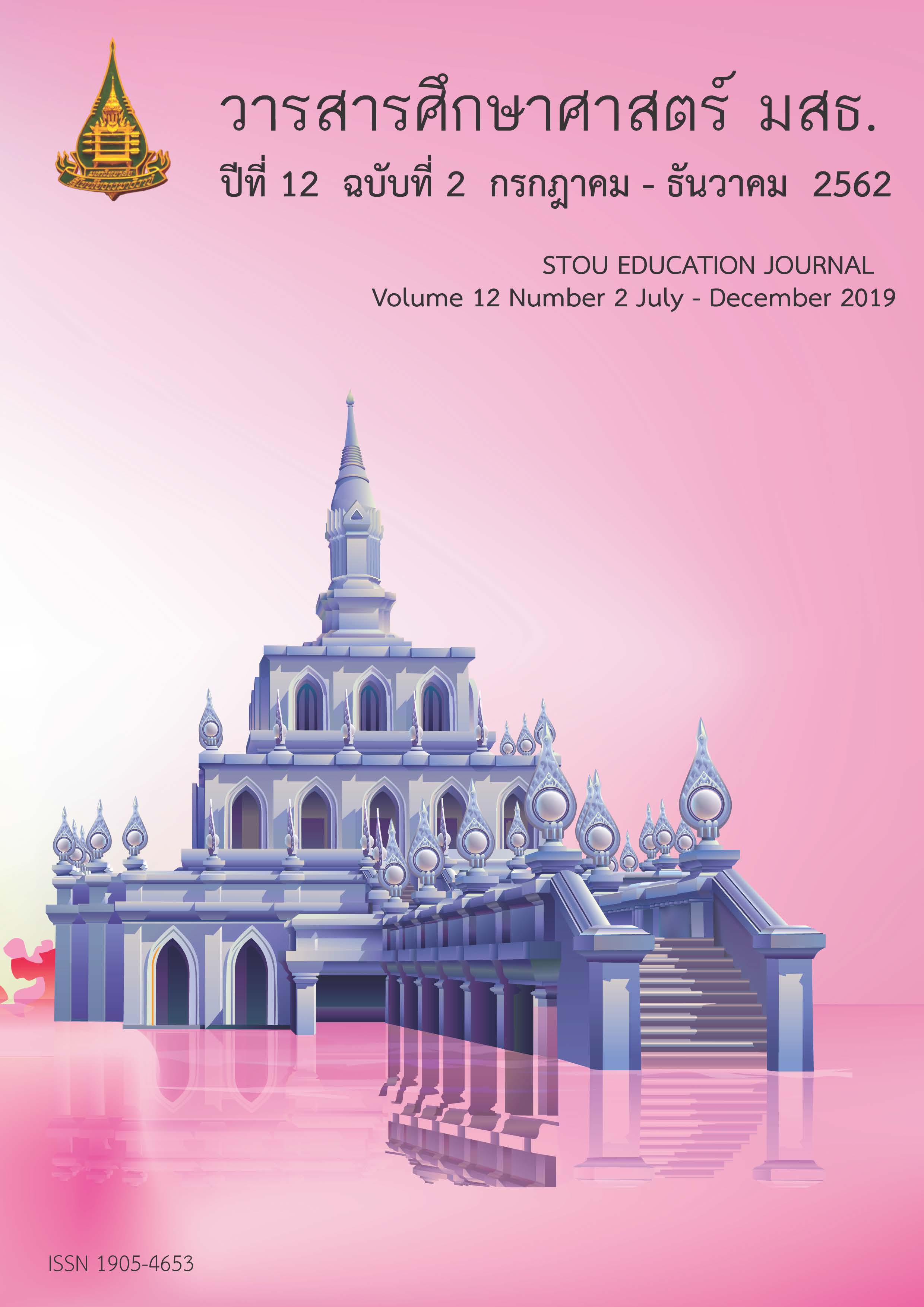The Operation for Student’s Desirable Characteristics Development Based on Tzu Chi’s Humanities Approach: A Case Study of Chiang Mai Tzu Chi School
Main Article Content
Abstract
The objectives of this research were to (1) study Tzu Chi’s humanities approach to be applied in management and operation for development of student’s desirable characteristics; (2) study results of application of Tzu Chi’s humanities approach in the operation for development of student’s desirable characteristics; and (3) study guidelines for development of student’s desirable characteristics in Chiang Mai Tzu Chi School based on Tzu Chi’s humanities approach. This research employed a qualitative method. Data were collected via observation and interviewing. 32 key research informants comprised 1 administrator, 7 teachers and school personnel, 12 students and 12 representatives of parents. Data were analyzed with content analysis. Research findings were as follows: (1) Tzu Chi’s humanities approach that was applied in development of desirable characteristics of students at Chiang Mai Tzu Chi School was the 4 principles of Brahmavihara consisting of Metta (loving-kindness), Karuna (compassion), Mudita (sympathetic joy), and Upekkha (equanimity); (2) the application of Tzu Chi’s humanities approach for development of desirable characteristics of Chiang Mai Tzu Chi School’s students results in enabling the students to acquire the awareness and understanding of the ideal of perfect human being which in turn enables them to be students who possess virtues, ethics, patriotism, the love for religion, and the love for the monarchy; moreover, they obey the rules, have discipline, are honest, are grateful for their parents, have avidity for knowledge, live sufficiently, have volunteer-mindedness, and help the others without expecting any reward; and (3) as for guidelines for development of student’s desirable characteristics in Chiang Mai Tzu Chi School based on Tzu Chi’s humanities approach, the school should develop learning activities management and follow-up activities, and the teachers and parents should be allowed to cooperate in organizing activities to instill virtues and ethics in the minds of the students.
Article Details
References
คณะศึกษาศาสตร์ มหาวิทยาลัยขอนแก่น. (2551). คุณลักษณะอันพึงประสงค์ของนักเรียน. วารสารศึกษาศาสตร์ฉบับวิจัยบัณฑิตศึกษา, 2(1), 25-33.
เดิมแท้ ชาวหินฟ้า, รัศมี กฤษณมิษ และสุวิดา แสงสีหนาท. (2550). การศึกษาแนวทางการปลูกจิตสำนึกคุณธรรมผ่านระบบการศึกษา: กรณีศึกษามูลนิธิพุทธฉือจี้ ไต้หวัน. ศูนย์ส่งเสริมและพัฒนาพลังแผ่นดินเชิงคุณธรรม.
พระไพศาล วิสาโล. (2550). ศาสตร์และศิลป์แห่งการจัดการความดี:กรณีศึกษามูลนิธิฉือจี้ไต้หวัน (พิมพ์ครั้งที่ 2). กรุงเทพฯ: พริกหวานกราฟฟิค.
โรงเรียนฉือจี้เชียงใหม่. (2555). แผนพัฒนาการศึกษาเอกชน. เชียงใหม่: โรงเรียนฉือจี้เชียงใหม่.
ศีลธรรม โพนะทา. (2546). การพัฒนาคุณธรรมจริยธรรมของนักเรียนระดับมัธยมศึกษาตอนต้นโรงเรียนบ้านโนนค้อ อำเภอคำม่วง สำนักงานเขตพื้นที่การศึกษากาฬสินธุ์เขต 3. (การศึกษาค้นคว้าอิสระหลักสูตรการศึกษามหาบัณฑิต ไม่ได้ตีพิมพ์). มหาวิทยาลัยมหาสารคาม, มหาสารคาม.
สำนักวิชาการและมาตรฐานการศึกษา. (2553). แนวทางการพัฒนาการวัดและประเมินคุณลักษณะอันพึงประสงค์ ตามหลักสูตรแกนกลางการศึกษาขั้นพื้นฐาน พุทธศักราช 2551. สำนักงานคณะกรรมการการศึกษาขั้นพื้นฐาน กระทรวงศึกษาธิการ. กรุงเทพมหานคร: โรงพิมพ์สำนักงานพระพุทธศาสนาแห่งชาติ.


